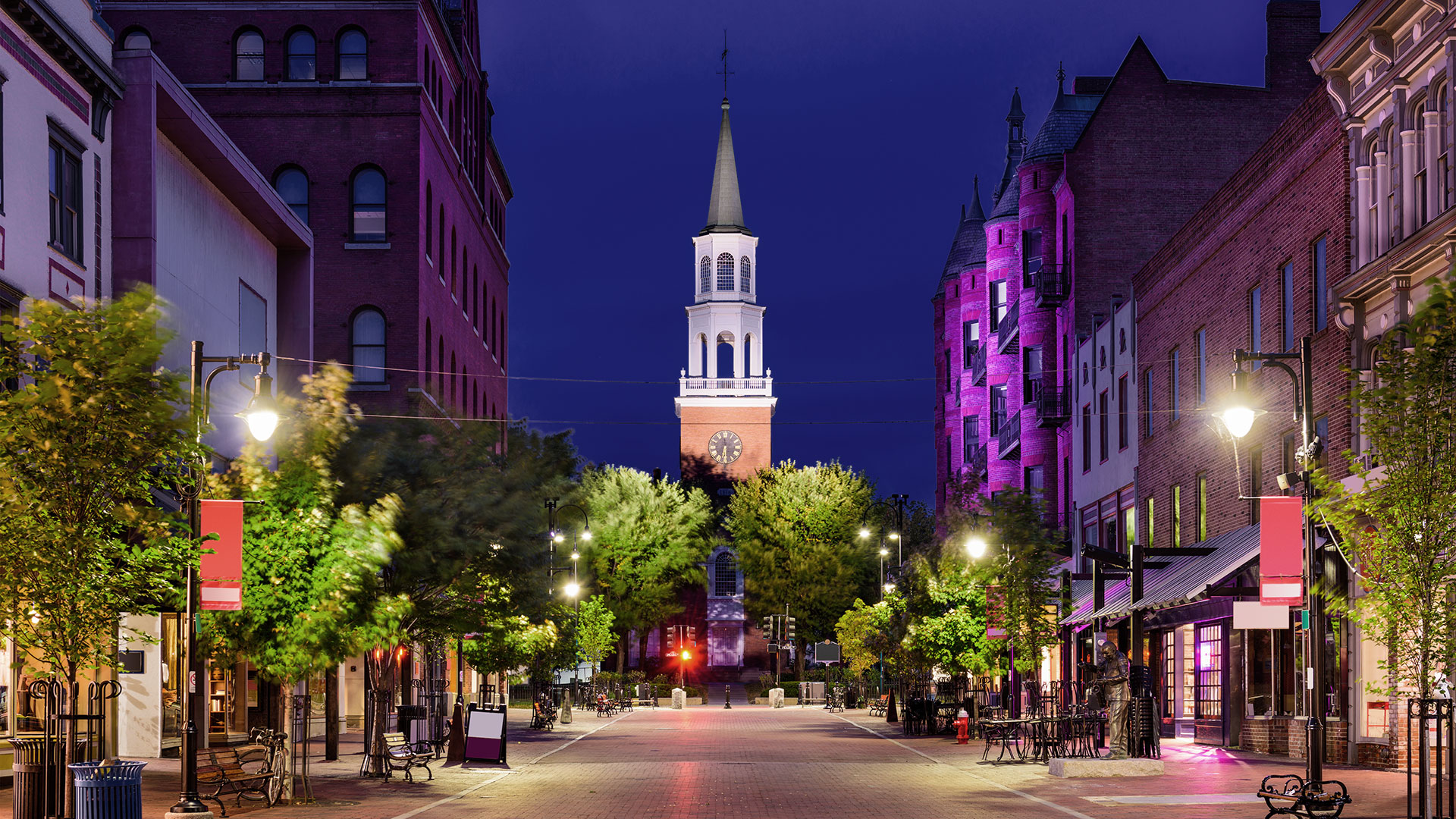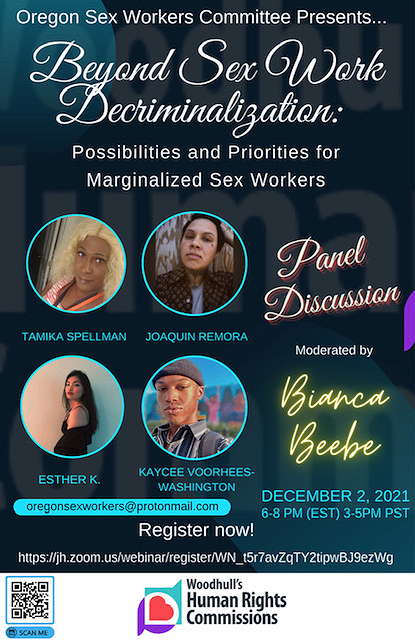December 13, 2021
In a historic move, the Burlington, VT City Council unanimously supported a resolution to remove harmful, stigmatizing, and archaic language around prostitution from its city charter. Burlington voters will now have the opportunity to vote on the measure in March. The formal process to amend the charter mandate to “restrain and suppress houses of ill fame and disorderly houses, and to punish common prostitutes and persons consorting therewith,” was triggered by a resolution by City Councilor Perri Freeman, which was unanimously approved in June 2021. The City Council Charter Committee then voted in favor of bringing the amendments to the full Council. Voters will now have the opportunity to make a change that would support human rights and dignity.
When the resolution was first introduced, Mayor Miro Weinberger asked City Council members to “work to repeal or amend any language that is discriminatory towards women, to sex workers and to victims of sex crimes.” Vermonters who engage in consensual adult sex work and individuals who have experienced trafficking urged City Councilors to allow residents to vote on the issue. “We have been criminalized and marginalized for too long,” said Henri Bynx, co-founder of The Ishtar Collective, Vermont’s only organization run by and for sex workers and survivors of trafficking, “We’re asking our neighbors to recognize us as deserving of dignity and bodily autonomy. This charter change would be a step in the right direction towards improving the health and safety of individuals who engage in sex work consensually and those who are trafficked into it,” Bynx continued.
The charter amendment would not decriminalize prostitution, as it remains illegal at the state level. In May 2021, Gov. Phil Scott approved legislation that provides limited criminal immunity to people who report a crime committed against them, or which they witnessed, while voluntarily involved in sex work or while a victim of human trafficking. “This [law] means that a pimp or an abuser could no longer threaten arrest to exploit a sex worker or survivor of trafficking, which is a common tactic of exploitation. It shows lawmakers care about us as people. They are taking action to protect our safety by giving us equal protection under the law,” said Bynx.
Sex work is not inherently dangerous or exploitative but criminalization puts sex workers at risk and creates conditions that allow trafficking to proliferate. “Permitting sex workers to come forward and report being the victim of or witness to a crime without fear of arrest is critical but I’m looking forward to the day when we will no longer be as vulnerable to crime or exploitation as we are now. That day will come when consensual adult sex work is decriminalized,” said J. Leigh Oshiro-Brantly, co-founder of The Ishtar Collective and research and project manager at DSW.
Stigma and discrimination cause tremendous harm to all people in the sex industry, whether they are there by choice, circumstance, or coercion. Laws that further this stigma, shame, misogyny, and discrimination enable and amplify harm to an already vulnerable population. The current Burlington City Council charter mandate is not only immensely archaic and dehumanizing, but it also does nothing to support the health and well-being of the citizens of Burlington.
Ishtar Collective members and others testified in support of the charter change at the meeting on December 13. The City Council also heard vocal opposition from national groups who intentionally conflate trafficking and consensual adult sex work and unanimously stood on the side of evidence, human rights, and dignity. DSW is pleased to be working with The Ishtar Collective, a DSW grantee, and others to make this important and historic change in Burlington.

(Shutterstock, 2021)
DSW Newsletter #31 (December 2021)
Burlington, VT City Council Votes To Remove Language on Sex Work From Its City Charter

Johns Hopkins University Hosts Panel on Decriminalization

Honoring International Day To End Violence Against Sex Workers

Hero of the Month: Joaquin Remora

